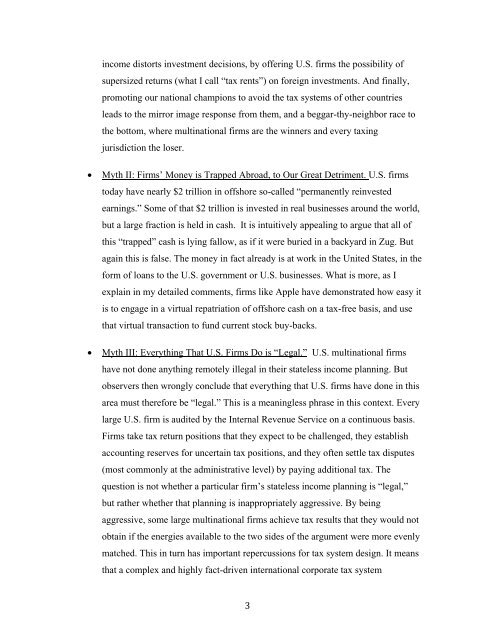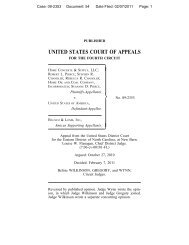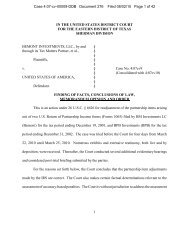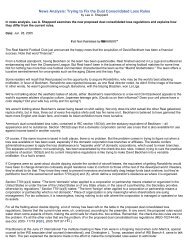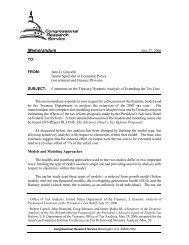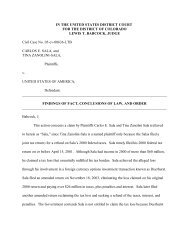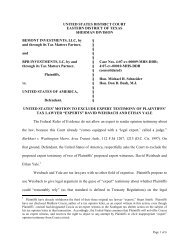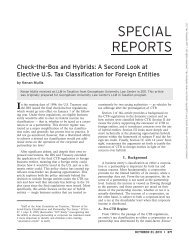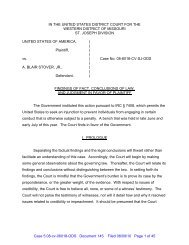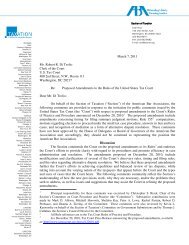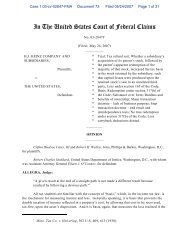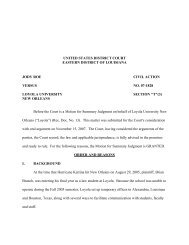1 TESTIMONY OF PROF. EDWARD D. KLEINBARD HEARING ...
1 TESTIMONY OF PROF. EDWARD D. KLEINBARD HEARING ...
1 TESTIMONY OF PROF. EDWARD D. KLEINBARD HEARING ...
- No tags were found...
Create successful ePaper yourself
Turn your PDF publications into a flip-book with our unique Google optimized e-Paper software.
income distorts investment decisions, by offering U.S. firms the possibility ofsupersized returns (what I call “tax rents”) on foreign investments. And finally,promoting our national champions to avoid the tax systems of other countriesleads to the mirror image response from them, and a beggar-thy-neighbor race tothe bottom, where multinational firms are the winners and every taxingjurisdiction the loser.Myth II: Firms‟ Money is Trapped Abroad, to Our Great Detriment. U.S. firmstoday have nearly $2 trillion in offshore so-called “permanently reinvestedearnings.” Some of that $2 trillion is invested in real businesses around the world,but a large fraction is held in cash. It is intuitively appealing to argue that all ofthis “trapped” cash is lying fallow, as if it were buried in a backyard in Zug. Butagain this is false. The money in fact already is at work in the United States, in theform of loans to the U.S. government or U.S. businesses. What is more, as Iexplain in my detailed comments, firms like Apple have demonstrated how easy itis to engage in a virtual repatriation of offshore cash on a tax-free basis, and usethat virtual transaction to fund current stock buy-backs.Myth III: Everything That U.S. Firms Do is “Legal.” U.S. multinational firmshave not done anything remotely illegal in their stateless income planning. Butobservers then wrongly conclude that everything that U.S. firms have done in thisarea must therefore be “legal.” This is a meaningless phrase in this context. Everylarge U.S. firm is audited by the Internal Revenue Service on a continuous basis.Firms take tax return positions that they expect to be challenged, they establishaccounting reserves for uncertain tax positions, and they often settle tax disputes(most commonly at the administrative level) by paying additional tax. Thequestion is not whether a particular firm‟s stateless income planning is “legal,”but rather whether that planning is inappropriately aggressive. By beingaggressive, some large multinational firms achieve tax results that they would notobtain if the energies available to the two sides of the argument were more evenlymatched. This in turn has important repercussions for tax system design. It meansthat a complex and highly fact-driven international corporate tax system3


